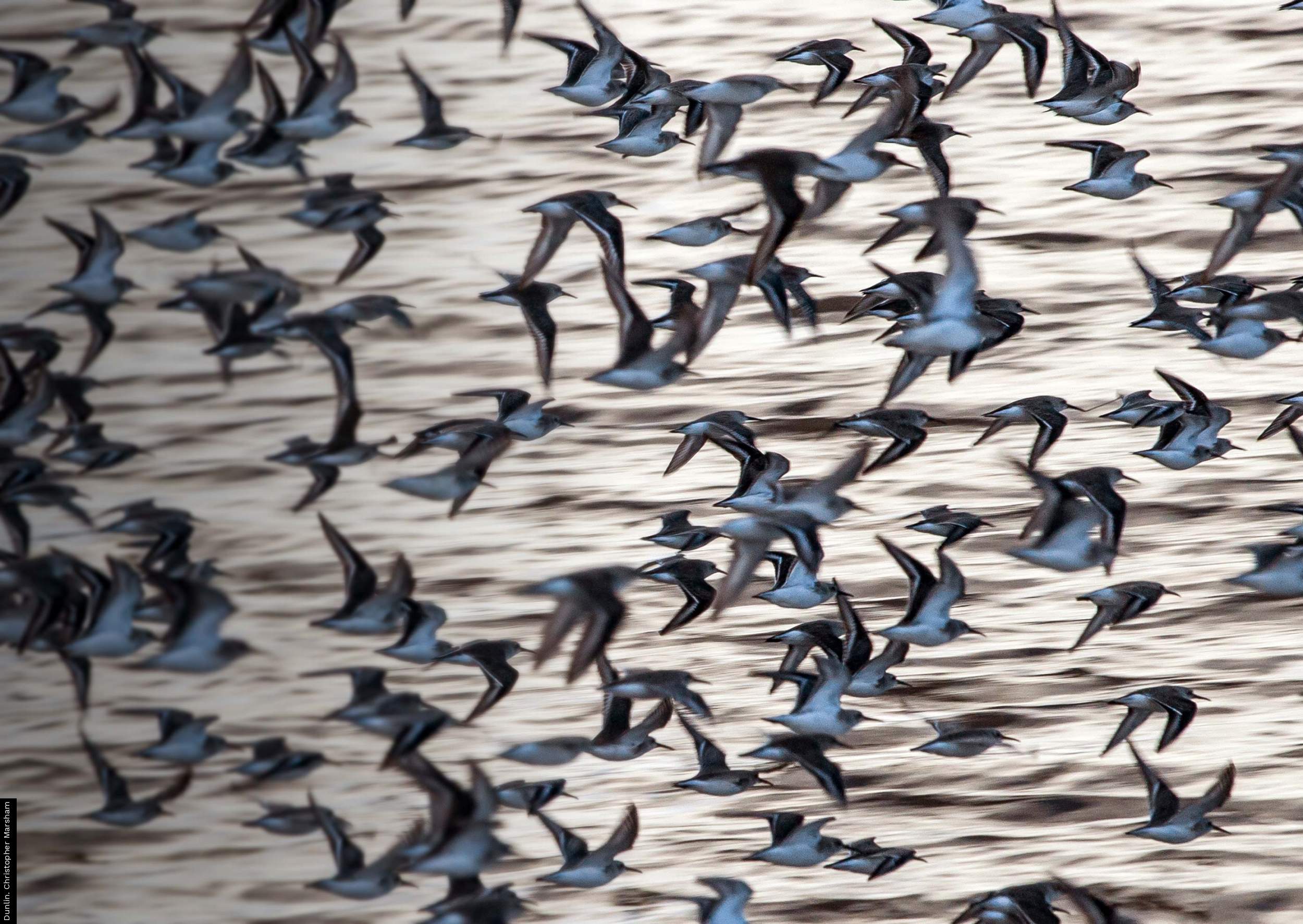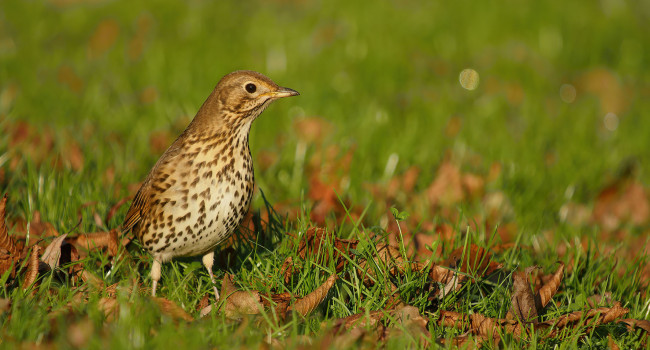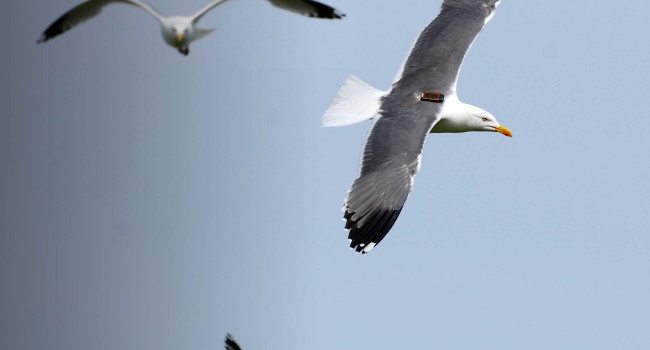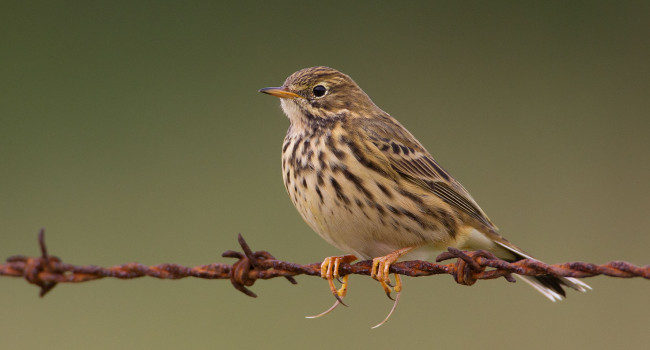Boost for Britain's biodiversity
01 Feb 2010 | No. 2010-02-06
A six year science programme to track the changes in bird populations across the UK, and to investigate the causes of recent declines was announced today by the British Trust for Ornithology and the Joint Nature Conservation Committee. The information that will be collected by the partnership’s volunteers over the next six years is estimated to be worth in the region of £49 million. It will be used to shape environmental policy and assess targets set by Government.
1982-2007
Some of the causes of declines in bird populations, such as changes in agricultural practice over the past forty years, are well known but others are poorly understood. Many woodland and migrant birds have declined rapidly over the last 25 years but our understanding of how to reverse these declines is incomplete. The Willow Tit, once a common woodland bird, declined by 82% between 1982-2007 and Spotted Flycatcher, a once frequent garden-nesting summer visitor, declined by 81% over the same period. A key objective of the work will be to identify actions needed to reverse such declines, and to assess the impacts of wider environmental change on biodiversity.
Whilst some progress has been made towards the 2010 target of halting biodiversity loss in the UK, some species continue to decline. It is vitally important to monitor the pressures causing these losses. This new programme will use birds as indicators of environmental change. Birds are useful for this as they are relatively large and so easy to see, they live in a wide range of habitats and respond very quickly to changes to those habitats.
Huw Irranca-Davies, Wildlife Minister said “The value of the information collected by the partnership’s volunteers can’t be underestimated. Without this army of well-trained and highly motivated citizen scientists, out in our towns and countryside, this enormous logistical challenge would be impossible. The information collected from this study will be vital in helping to inform our future direction.”
Andy Clements, BTO Director, commented, “We are very pleased to receive continuing Government support for this vital work through our partnership with JNCC. This scientific research is crucial in providing evidence about the impacts of human-induced and environmental change on our wildlife. It is long-term data like this, and accumulated knowledge over many decades, that will continue to answer key questions into the future. It ensures that we can continue to inform Government decisions and policies.”
Marcus Yeo, JNCC Managing Director, said “The International Year of Biodiversity is about encouraging people to value the wealth of wildlife and natural features around them. I believe that understanding the pressures on our biological systems is key to developing public understanding, leading to better decisions in the future. The information produced through our partnership with BTO is vital for this purpose, and at a time when public spending has to be very efficient, I believe this agreement will provide important evidence throughout the next six years, and represents tremendous value for money.”
Notes for Editors
- The BTO - JNCC partnership will:
- Monitor birds that use estuaries and wetlands in winter, and on migration during the spring and autumn, providing information relevant to many internationally important Special Protection Areas, and the often energy related projects that affect these habitats, e.g., the proposed Severn Barrage;
- Monitor breeding birds at 3,000 locations across the UK picking up interactions between birds, agriculture, and forestry as well as climate.
- Monitor the breeding success, migration, and rates of adult mortality in many bird species to help determine when in their lifecycles population change is occurring; and
- Analyse the data to provide information on which bird populations are changing and the broader environmental factors driving this, and reporting the knowledge gained through innovative web-based systems as well as in the scientific literature.
- The total value of the new agreement is £5.0 million over six years to March 2016. Most of these funds will be provided by JNCC and BTO, but other partners in the BTO/JNCC/RSPB Breeding Bird Survey and the BTO/RSPB/JNCC Wetland Bird Survey in Association with the Wildfowl & Wetlands Trust will contribute £0.75 million to this total.
- The Joint Nature Conservation Committee (JNCC) is the statutory adviser to Government on UK and international nature conservation, on behalf of the Council for Nature Conservation and the Countryside, the Countryside Council for Wales, Natural England and Scottish Natural Heritage. Its work contributes to maintaining and enriching biological diversity, conserving geological features and sustaining natural systems. Website: www.jncc.gov.uk
- The BTO is the UK’s leading bird research organisation. Over thirty thousand birdwatchers contribute to the BTO’s surveys. They collect information that forms the basis of conservation action in the UK. The BTO maintains a staff of 100 at its offices in Norfolk and Stirling, who analyse and publicise the results of project work. The BTO’s investigations are funded by government, industry and conservation organisations. Website: www.bto.org
Contact information
Paul Stancliffe (BTO Press Officer)
Office: 01842 750050 (during office hours)
Mobile: 07845 900559 (anytime)
Email: press [at] bto.org
Alex Geairns (JNCC, Head of Communications)
Office: 01733 866839 (during office hours)
Email: communications [at] jncc.gov.uk
Images are available for use alongside this News Release
Please contact images [at] bto.org quoting reference 2010-02-06
The BTO has an ISDN line available for radio interviews
Please contact us to book an interview
Office: 01842 750050






Share this page